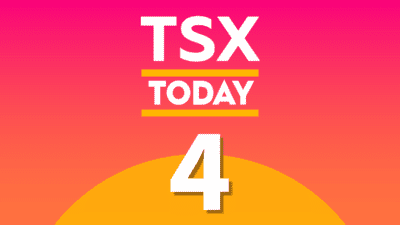Many investors have made money on Bombardier, Inc. (TSX:BBD.B) over the past year, and I’m thrilled for them. Over the past year, shares have increased by 81.25%, beating even its major competitors south of the border. With that said, things have slowed down, reminding me why I continue to avoid the stock.
Ultimately, it boils down to three reasons…
Delays
Reason one I’m avoiding Bombardier is the delays. Several years ago, Bombardier agreed to a deal with Toronto to deliver 204 street cars to Toronto Transit by the end of 2019. However, as of January, it has only delivered 66 on the $1 billion order.
Bombardier is trying to rectify the problem, launching a second production line to boost the number of cars it can produce. But with close to 200 cars that need to be delivered, I find the project risky.
It doesn’t end there. Bombardier also has a contract with Metrolinx, which called for 182 new LRT vehicles. Bombardier fell behind. However, unlike the Toronto Transit, which seems forgiving, Metrolinx revised the contract, reducing it from $770 million down to $392 million.
Now, its competitor Alstom is going to be making the other vehicles. It’s highly unlikely that Metrolinx will come back to Bombardier for future vehicles considering the significant delays.
Dilution and limited prospects
Then there is the dilution and limited prospects for Bombardier. When Bombardier was dealing with a potential tariff on all CSeries planes it sold, the company reached a deal with Airbus SE for 50.1% of the CSeries project. After spending billions of dollars to get the project off the ground, the upside was cut in half.
But Bombardier still has all of that debt. To rectify it, the company announced that it was issuing 168 million Class B shares at $3.80 a piece, effectively raising $638.4 million. With the company sitting on $9.2 billion in long-term debt, the move was necessary to get things under control.
The problem is that this cuts into investor returns. Adding new shares reduces any possible upside for investors, because it means that earnings have to be much stronger.
The dual shares
Notice I said that the company issued Class B shares. These each carry one vote per share. But then there are Class A shares, which carry 10 votes per share. And that’s where things get tricky…
The principal shareholders — four relatives of the founder — hold 249,449,910 Class A shares, which accounts for 79.47% of the outstanding Class A shares. They also own 30,211,319 Class B shares. These shares give these four principal shareholders 49.78% of the voting rights. Then there are other immediate members of the principal shareholders’ family that own an additional 3.45% of the voting right.
Why is this a problem? Activist investors tend to get a bad reputation. But when they see that a company is doing poorly, they can buy up a percentage of the company and force change.
With the family owning over 50% of the business, there’s no hope of that happening. And things have been run pretty poorly at the company so far. Therefore, until the family relinquishes its majority control, I see little reason why I’d buy. I have no say in what happens, whereas at other companies, I’m a part owner with a say.
It’s true that the company has been on a bit of a resurgence. But there are so many other great companies on the market today. So, I’ll be watching Bombardier fly by.







